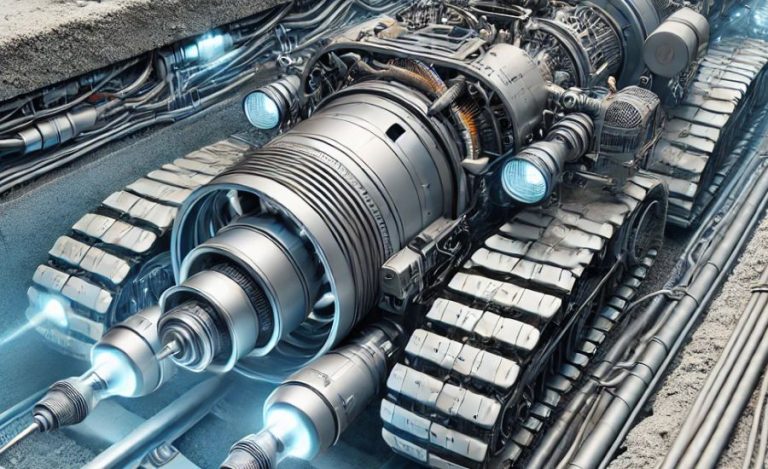Denso 10Pa17 447220-4771, Understanding, Working & More
Introduction
Ever experienced the frustration of a car that won’t start due to a failing ignition coil? The Denso 10PA17 447220-4771 ignition coil is a key component in ensuring your vehicle’s engine starts smoothly and runs efficiently. This guide provides a detailed overview of this part, its role in your car’s ignition system, common problems, and useful tips for replacement to help you keep your vehicle running optimally.
The Denso 10PA17 447220-4771 is known for its high-quality construction and reliability, crafted to deliver the precise high-voltage power necessary to ignite the air-fuel mixture in the engine’s cylinders. Ignition coils like this one are integral to the vehicle’s ignition system, converting battery power into the high voltage required for combustion. When functioning correctly, this coil ensures smooth engine performance. However, if it starts to malfunction, you may encounter a series of problems, such as engine misfires, rough idling, poor fuel economy, or even complete engine stalling.
Symptoms of a failing coil can include trouble starting the vehicle, inconsistent engine power, or the engine warning light illuminating. Misfires are another common indicator, as a damaged ignition coil can prevent proper combustion in one or more of the cylinders. Over time, an inefficient ignition coil can also strain other parts of the ignition system, potentially causing further damage if left unaddressed.
Routine checks and early replacement of the Denso 10PA17 447220-4771 can prevent these issues from escalating. Replacing the coil is often straightforward, though it’s essential to follow specific steps to ensure proper installation. Always consult your vehicle’s manual or seek assistance from a professional if you’re uncertain about the process. Using a high-quality replacement, such as the Denso 10PA17 447220-4771, can make a significant difference in your car’s reliability and performance.
By understanding the role and importance of the Denso 10PA17 447220-4771 ignition coil, car owners can take proactive measures to maintain their vehicle’s efficiency. Regular inspection and timely replacement of this component ensure your car remains in top condition, improving fuel efficiency and reducing the likelihood of unexpected breakdowns. With this knowledge, you’ll be better prepared to handle ignition coil issues, giving you peace of mind on the road.
Understanding the Denso 10PA17 447220-4771
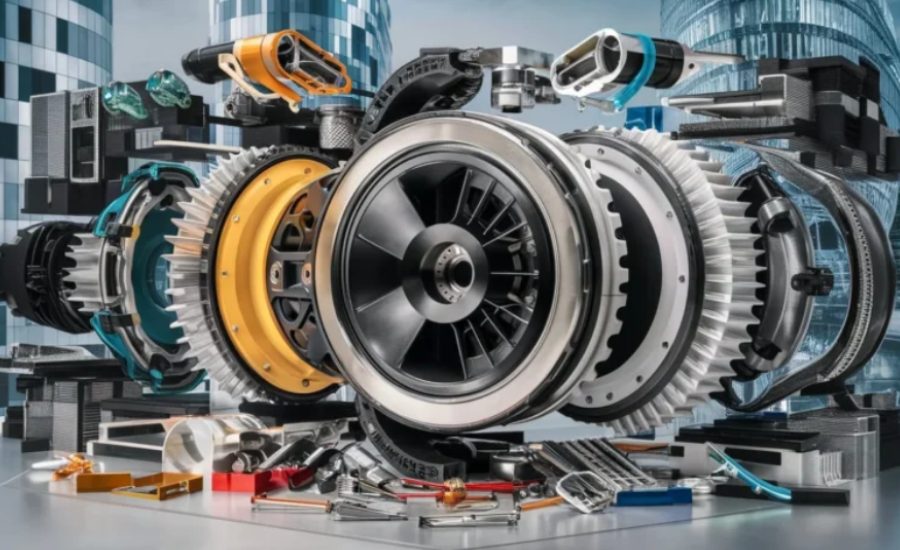
An essential component of an automobile’s ignition system, the Denso 10PA17 447220-4771 ignition coil is designed to supply the high-voltage spark required to ignite the fuel-air mixture in the engine’s combustion chamber. This ignition process affects the engine’s overall performance and gas efficiency, making it essential for the engine to start and run smoothly.
The Value of a Working Ignition Coil
A well-maintained ignition coil, such as the Denso 10PA17 447220-4771, is essential to guaranteeing your vehicle runs at peak performance. A malfunctioning ignition coil can cause a number of performance problems.
These issues consist of engine misfires, difficult idling, reduced energy, and extended gas consumption. Additionally, a faulty coil might also make the car difficult to begin, specifically in chillier weather. An inefficient ignition coil also can reason the check engine light to activate because of combustion issues, which can also cause better gasoline charges and environmental effect via accelerated emissions.
Common Symptoms of a Failing Denso 10PA17 447220-4771
Recognizing the early warning symptoms of a failing ignition coil will let you save you similarly car harm and maintain your automobile running efficaciously. Here are a few not unusual signs of a failing Denso 10PA17 447220-4771 ignition coil:
Engine Misfires: Misfiring happens while the spark plug fails to ignite the air-gas aggregate in one or greater cylinders, main to hard idling and reduced electricity output.
Decreased Fuel Efficiency: A suffering ignition coil can result in inefficient combustion, inflicting the vehicle to eat more gasoline than common.
Difficulty Starting: Particularly in cold weather, a failing coil may additionally make beginning the engine more difficult.
Illuminated Check Engine Light: The dashboard check engine light regularly indicators a hassle with the ignition device, including ability problems with the ignition coil.
Causes of Ignition Coil Failure
Various factors can cause ignition coil failure over the years. Understanding those can help in taking preventive measures:
Wear and Tear: Exposure to extreme temperatures, moisture, and vibrations can degrade the ignition coil’s components, leading to reduced performance.
Spark Plug Issues: Worn spark plugs can strain the ignition coil, hastening its wear.
Material Quality: Ignition coils made from lower-quality materials or with minor manufacturing flaws may fail sooner than high-quality parts.
Steps for Replacing the Denso 10PA17 447220-4771
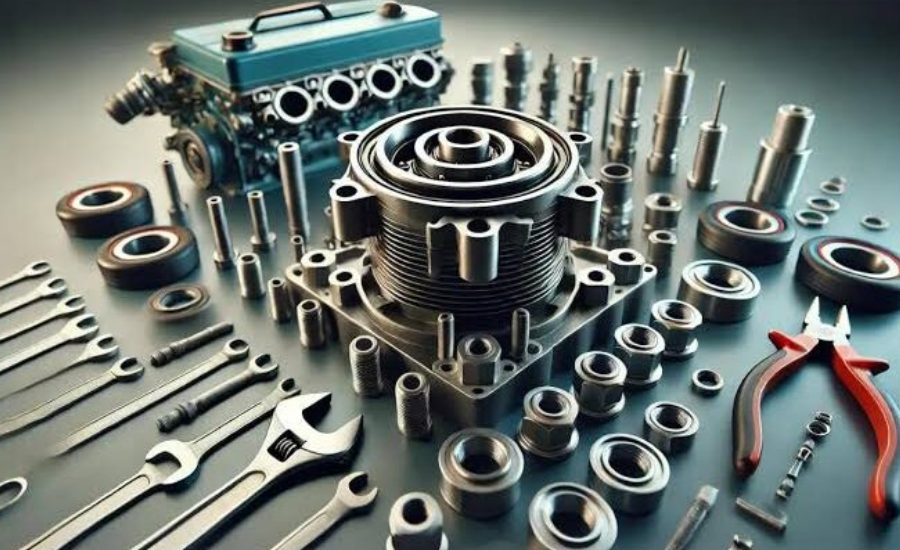
If you identify signs of a failing ignition coil, it’s essential to consider replacement to maintain vehicle performance. Ensuring you use quality parts like the Denso 10PA17 447220-4771 can help improve the longevity of your vehicle’s ignition system, supporting smooth starts, efficient combustion, and reliable overall performance.
Replacing Your Denso 10PA17 447220-4771 Ignition Coil
If you have showed that your Denso 10PA17 447220-4771 ignition coil wishes changing, you have two fundamental options: acting a DIY restore or searching for professional help. Both techniques come with their very own benefits, so your preference will rely on your mechanical skills and comfort level.
For individuals with mechanical revel in, changing the ignition coil independently can be a price-effective and profitable project. However, it is vital to continue with caution, the use of the right equipment and following safety hints. Required tools encompass a socket wrench set, ratchet, mixture wrench set, screwdriver set, safety glasses, paintings gloves, and a replacement ignition coil.
Steps for DIY Replacement
Disconnect the Battery: Start via disconnecting the poor battery terminal to save you unintentional electric shocks.
Identify the Coil Location: Locate the faulty ignition coil in the engine compartment.
Disconnect Electrical Connectors: Carefully eliminate the electric connectors connected to the coil.
Remove Old Coil: Use the appropriate tools to unscrew the bolts or screws securing the coil to the engine.
Install the New Coil: Position the brand new Denso 10PA17 447220-4771 ignition coil, steady it in location, and reconnect the electric connectors.
Reconnect the Battery: Finally, reconnect the terrible battery terminal to complete the set up.
During the process, wear safety glasses and gloves, and ensure the engine is absolutely cool before beginning work. If you come upon any problems, consulting a professional mechanic is recommended.
Choosing Professional Installation
Opting for professional installation can offer peace of mind and additional benefits. Skilled mechanics possess the necessary tools and expertise to replace the ignition coil accurately and can check for other related issues that might be affecting the ignition system.
When choosing a professional, select a reputable mechanic with a solid track record. Consider factors such as cost, convenience, and any warranties offered. Professional installation ensures that your vehicle will be properly serviced, reducing the risk of future ignition issues.
Tips for Maintaining Your Denso 10PA17 447220-4771 Ignition Coil
Maintaining your automobile’s ignition coil is crucial for reliable performance. Adopting precise upkeep practices and aware using behavior can help prolong the coil’s lifestyles.
Regular Maintenance
Routine vehicle protection is the foundation of ignition coil longevity. By preserving up with scheduled services, you can capture capacity issues early and make bigger your automobile’s standard performance. Regular oil adjustments are in particular important for defensive the engine and its additives, as fresh oil facilitates control heat and reduce put on. Replacing air and gas filters guarantees clean air and gasoline attain the engine, selling efficient combustion and lessening stress at the ignition coil. Periodic inspections by way of a certified mechanic can also pick out potential issues earlier than they get worse, such as the situation of the ignition coil and spark plugs.
Mindful Driving Habits
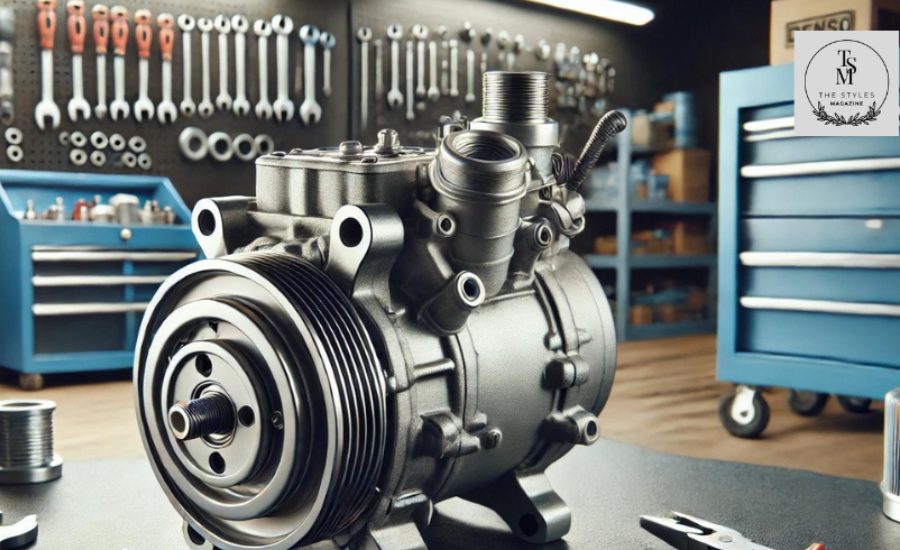
Driving habits play a significant role in the health of your ignition coil. Avoid rapid acceleration and hard braking, which place unnecessary stress on the engine and its components. Prolonged idling can also lead to increased wear, so try to minimize idle time when possible. Using high-quality fuel supports engine cleanliness and smooth performance, further protecting the ignition coil.
By following these tips, performing regular maintenance, and practicing good driving habits, you can help optimize the performance and lifespan of your Denso 10PA17 447220-4771 ignition coil, ensuring a reliable and efficient driving experience.
FAQs on the Denso 10PA17 447220-4771 Ignition Coil
1. What does the Denso 10PA17 447220-4771 ignition coil do?
The ignition coil generates the high-voltage spark needed to ignite the air-fuel mixture in your engine, which powers the car. It’s a crucial component of the ignition system and helps ensure smooth engine performance.
2. What are signs of a failing ignition coil?
Common signs include engine misfires, difficulty starting the car (especially in cold weather), rough idling, decreased fuel efficiency, and the check engine light coming on.
3. How can I tell if my Denso 10PA17 447220-4771 needs replacement?
If you’re experiencing misfires, poor fuel economy, or an illuminated check engine light, these may indicate a faulty ignition coil. If unsure, have a mechanic inspect your vehicle.
4. Can I replace the Denso 10PA17 447220-4771 ignition coil myself?
Yes, if you’re comfortable with basic mechanical tasks and have the right tools. Be sure to follow proper safety guidelines, including disconnecting the battery and using protective gear. If you’re not confident, a professional mechanic can handle it for you.
5. What tools are needed for DIY ignition coil replacement?
Basic tools like a socket wrench set, screwdriver set, safety glasses, work gloves, and the replacement coil. Always consult your car’s manual for specific instructions.
6. What are the benefits of professional installation?
A professional can ensure a precise installation, troubleshoot other potential issues, and help with any underlying ignition system problems, which may improve the car’s overall performance and lifespan.
7. How can I maintain the Denso 10PA17 447220-4771 for optimal performance?
Routine maintenance is key. Regularly check your vehicle’s oil, replace air and fuel filters, and drive mindfully (avoid sudden acceleration and hard braking). Periodic inspections by a mechanic are also helpful.
8. How often should I check the ignition coil?
Checking the coil as part of routine vehicle inspections, especially during regular maintenance visits, can prevent unexpected issues.
Final Words
In conclusion, by supplying the high-voltage spark required for combustion, the Denso 10PA17 447220-4771 ignition coil is essential to maintaining the smooth operation of your car’s engine. Consistent upkeep, timely replacement when required, and careful driving practices can greatly increase the lifespan of this important part. Using high-quality parts, such as the Denso 10PA17 447220-4771, will keep your car operating at its best whether you decide to change the ignition coil yourself or hire a professional. You may avoid more significant issues and drive with dependability and efficiency if you understand how it works and take care of problems as soon as they arise.
For more Information About Technology visit francherway
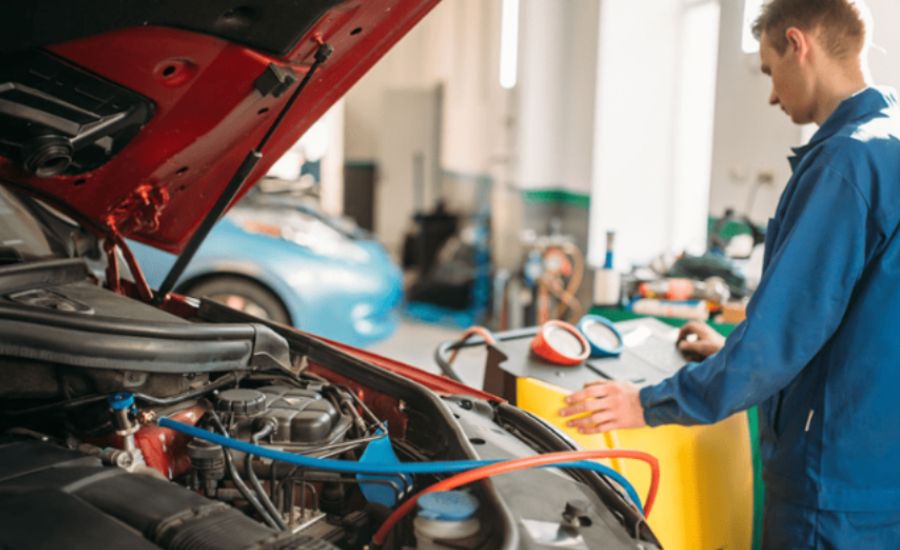



![Connect To GoodWillotc.Com[205.178.189.131]:25: Connection Timed Out & More 11 Connect To GoodWillotc.Com[205.178.189.131]:25: Connection Timed Out](https://francherway.com/wp-content/uploads/2024/10/Customization-Options-24-768x469.jpg)
